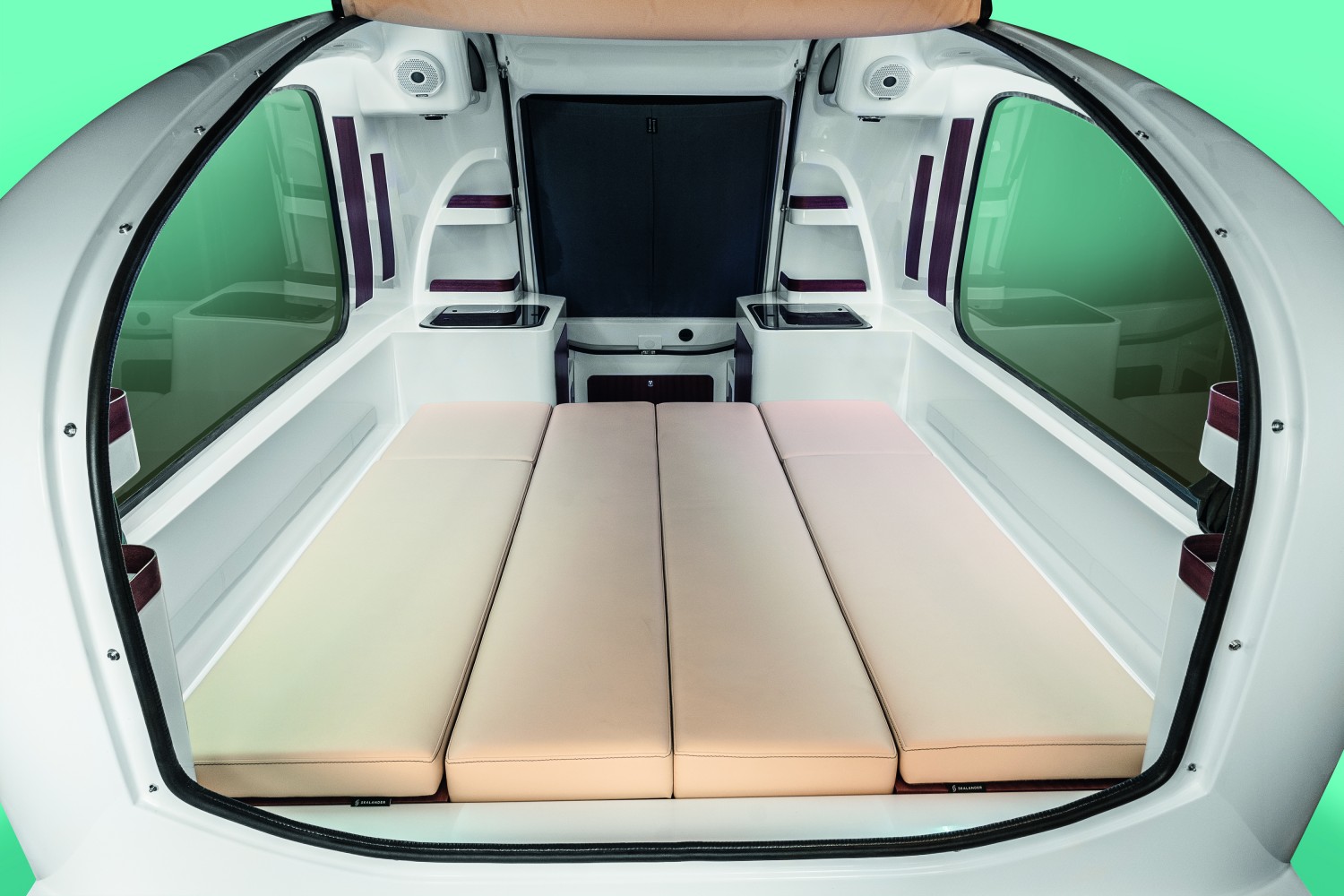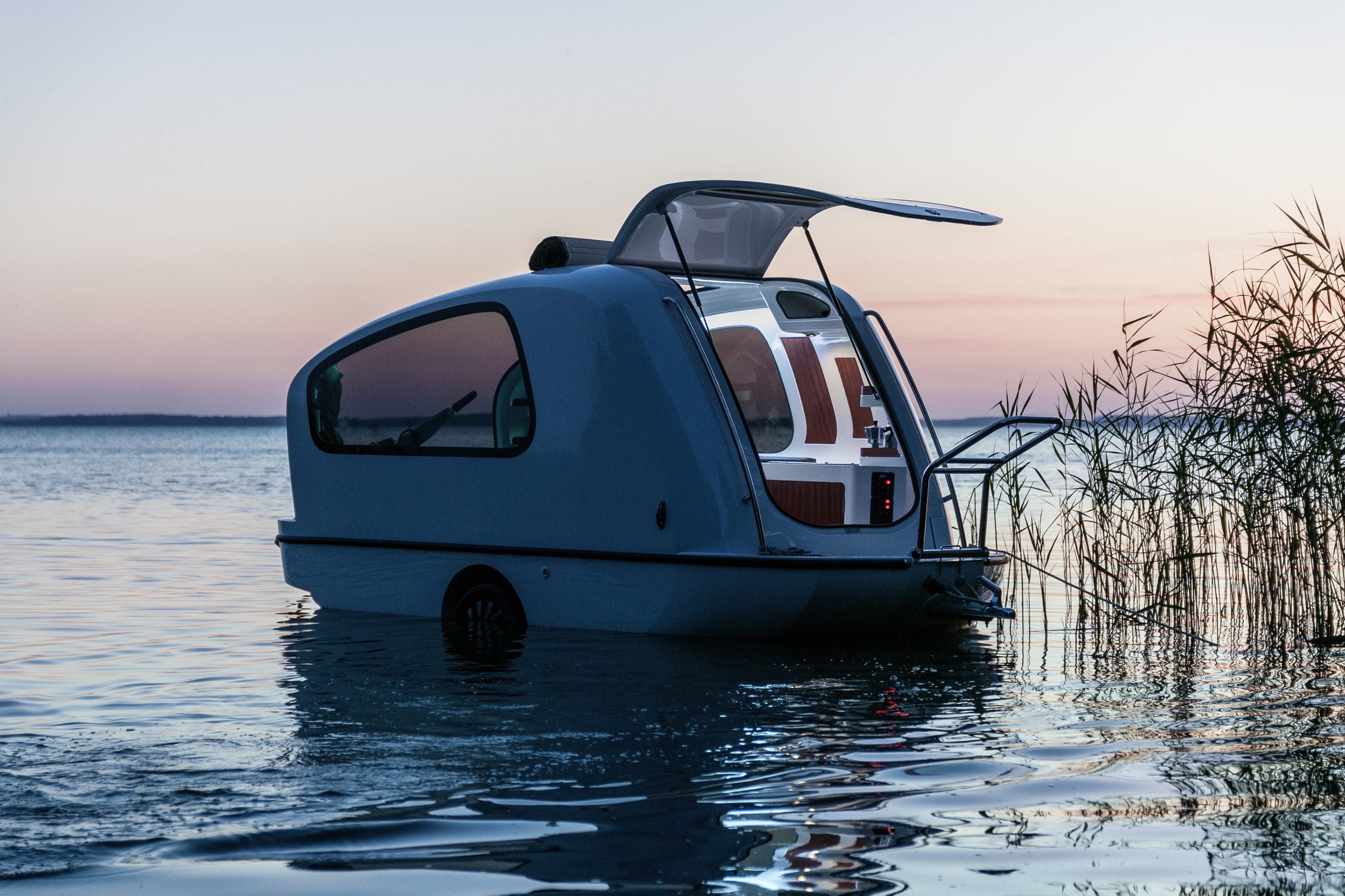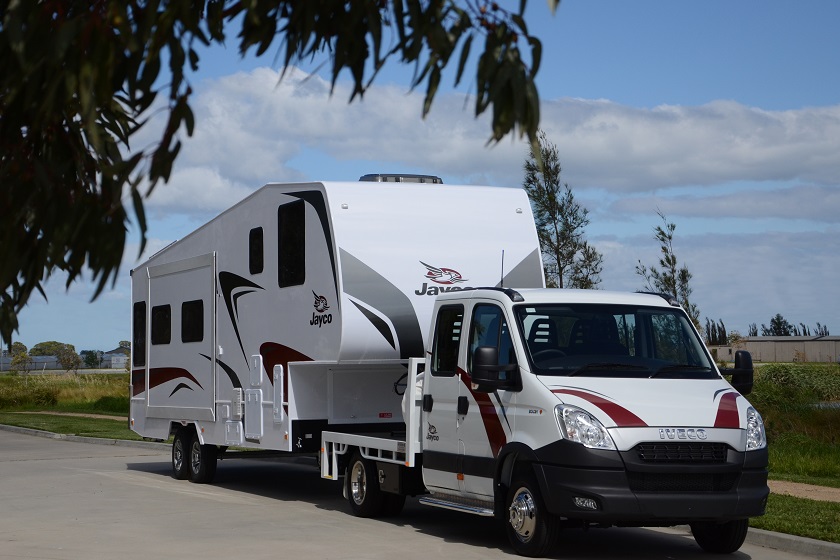Is it a boat? Or is it a caravan? Well actually, it’s both. Today’s innovative designers are blurring the lines between traditional caravans as we know them and other popular recreational vehicles.
While the caravan industry operates on a smaller scale than the automotive industry, these multi-use vehicles have the potential to appeal to a broader audience – and alter the face of caravanning. Aided by advances in materials and manufacturing processes (often honed in the automotive world), designers are imagining futuristic caravans and predicting future camping trends. Let’s take a look at some of the most intriguing and inspiring hybrid models:
Colim Caravan Concept by Christian Susana
A combination of mini-van, motorhome, caravan and car, the Colim Caravan Concept turns traditional vehicle design on its head. It reflects the way that the 20th century home has been transformed from a group of specialised rooms into singular, multi-use spaces.
The caravan’s modular design provides a lot of flexibility in how it can be used – one moment it’s a motorhome, the next it’s a separate car and caravan. Colim would fill every journey with potential, so much so that you may be driving to work one morning and just keep going.
The Nautic Sleeper continues the theme of crossing boundaries and mixed-use vehicles, with its name alluding to its amphibious capability. Because it lacks the amenities of a larger caravan, the small, two-berth camper trailer can be described as an ‘aquatic tent’ and is suited to impromptu weekend outings more than expeditions like the ‘big lap’.
It is perhaps more of a luxury than a typical caravan. The small-form factor might remove one of the biggest barriers to owning a caravan: storage. The teak decking on Nautic’s roof and bow is continued on the port side’s unique, fold-down pontoon.
The Schwimmcaravan continues the Nautic idea of camper trailer cum marine craft, only it adds the conveniences of a kitchenette and a dining space that converts to a twin berth – in this way, it’s a far more realistic configuration. The use of customisable, premium materials reflects the market’s desire for luxury experiences, while the panoramic windows and large sunroof show a clear trend away from the comparatively stuffy caravans of today.
Designed for protected waterways, the pleasure craft’s electric outboard motor propels it in near silence. But the most important fact about Schwimmcaravan is that it has made the jump from flashy concept to fully fledged production model.

Image © 2015 Malte Spindler/DIE BRUeDER, Sealander GmbH 2014
If we are to believe these designers, there’s a clear focus on efficient, mixed-use recreational vehicles. Importantly, designs such as these could broaden the appeal of life on the road and draw in younger couples wanting more of a luxury camping experience and older couples not yet ready to commit to the grey nomad movement.
A camper trailer is a realistic alternative to a caravan. Find out more in our caravan vs camper comparison.





